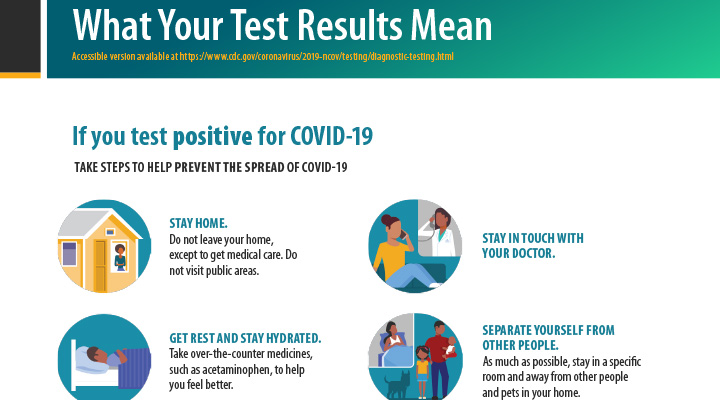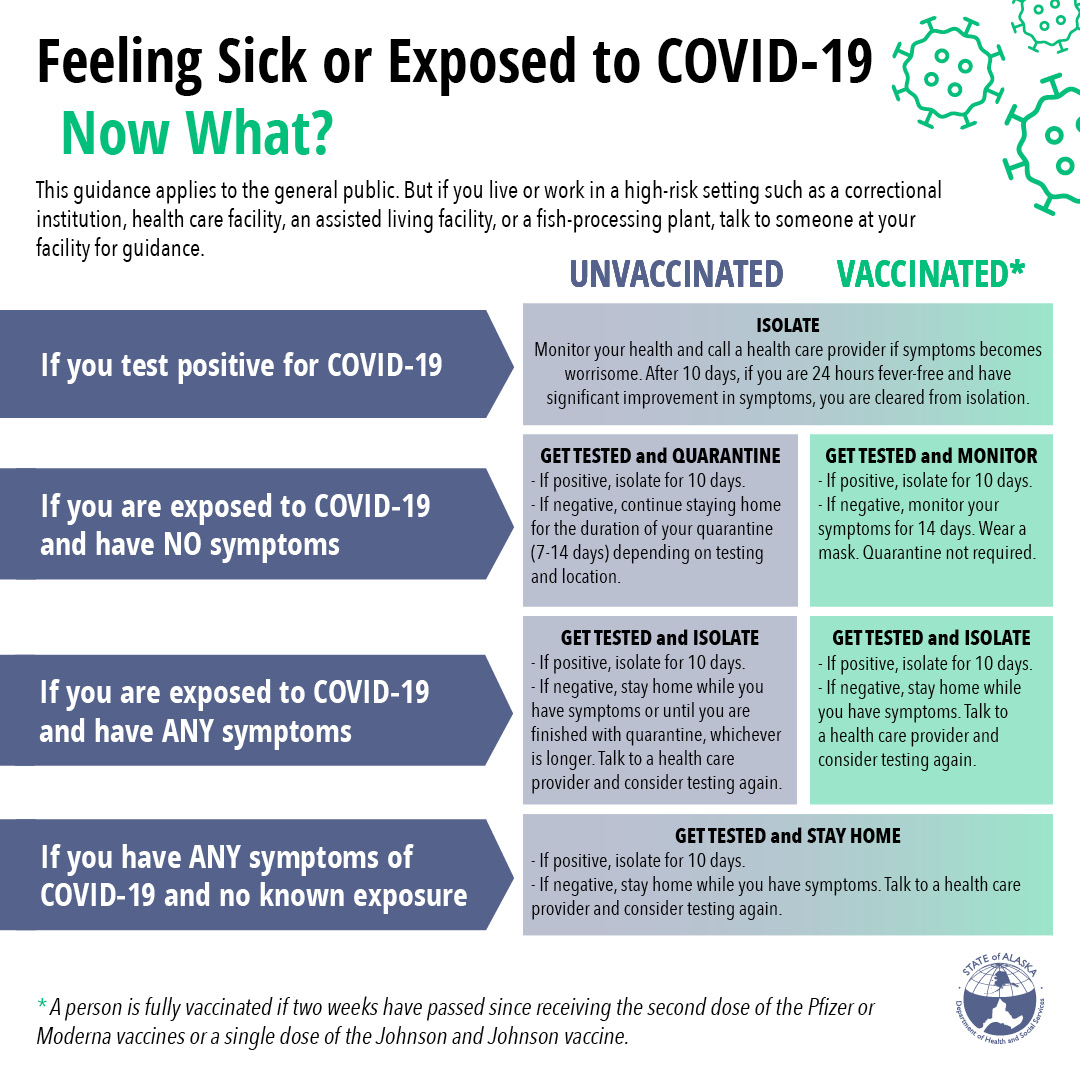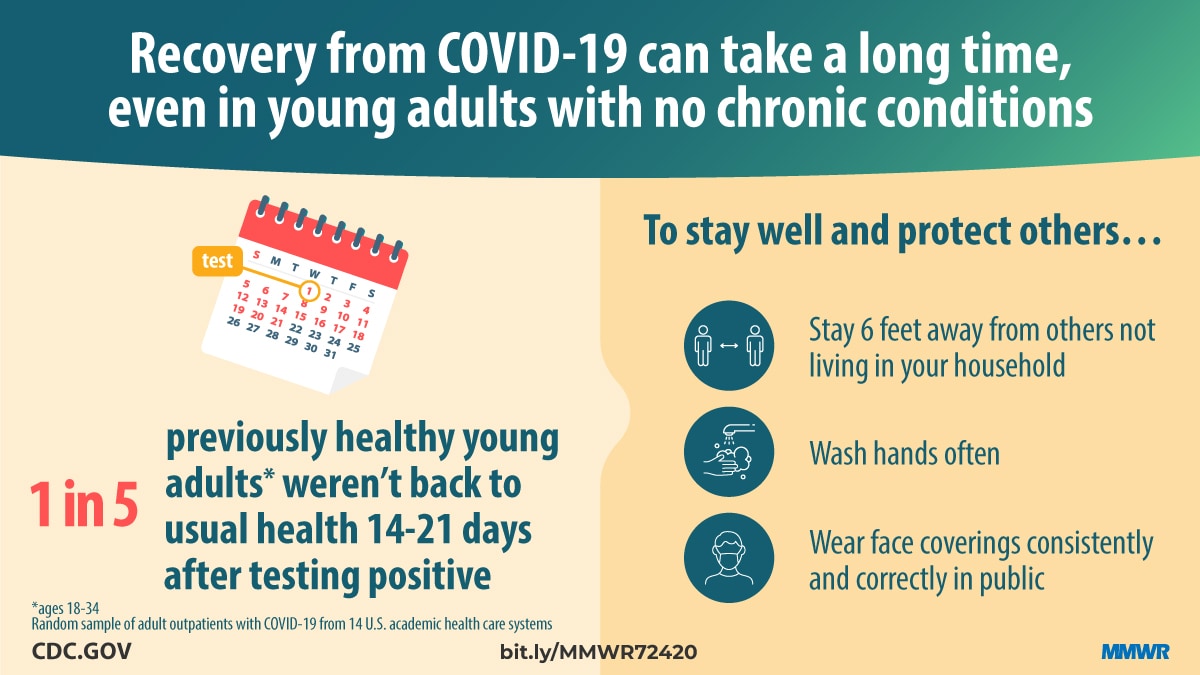For COVID-19 there is emerging evidence to suggest the infectious period may start 1 to 3 days before you develop symptoms. If your test is negative keep self-isolating for the rest of the 10 days.
World Health Organization Who If You Are Diagnosed With Covid 19 Or Receive A Positive Test Results This Is What You Can Do To Protect Your Friends And Family Facebook
While you could test positive for COVID-19 as soon as two days after exposure false negatives are common early in the 14-day incubation period.

How long can you have covid 19 before you test positive. This will mean youre self-isolating for more than 10 days overall. That is why if you have had a credible. Get tested again 5-7 days after the end of isolation for the person with COVID-19.
If you begin to develop symptoms during isolation follow the if you have symptoms criteria above before getting vaccinated. I have symptoms of COVID-19. 10 days have passed since your positive viral test.
Those patients had markers of shedding indicating they could still spread the. Isolation can end if 14 days have passed from the positive COVID-19 test and the traveler has been symptom-free for at least seven days. In one study on false negative rates after COVID-19 exposure researchers found that in the four days prior to symptom onset the probability of a false negative was extremely high on day one.
A negative test between seven and 10 days of exposure is a better indicator Wells said but even then some people might not test positive until later. Studies have shown that people may be contagious for about two days before developing COVID-19 symptoms. You can be a contact any time from 2 days before the person who tested positive developed their symptoms.
If you do the PCR test later than this youll need to self-isolate for 10 full days even if you get a negative PCR result. Vaccination should be delayed in people who have a confirmed infection of Covid-19. It can take almost a week after exposure to COVID-19 to have a positive test result.
Someone with an asymptomatic COVID-19 case can get vaccinated as soon as their isolation ends 10 days after testing positive. Home isolation is permitted but those who cannot meet the countrys requirements must stay in an official quarantine facility or hotel. 24 hours before your positive COVID-19 test result - if you did not have symptoms of COVID-19.
The agency states that someone with a mild or moderate case of COVID-19 stops being infectious no more than ten days after symptoms start. Get PCR a test to check if you have COVID-19 on GOVUK if you get symptoms while youre self-isolating. If you are fully vaccinated you should wait three to five days after exposure before getting a test.
People who test positive for COVID-19 but do not develop symptoms in the 10 days following the test result are considered to be likely no longer contagious after those 10 days. In England if you do the PCR test within 2 days of a positive rapid lateral flow test at a test site and your PCR test is negative you can stop self-isolating. Experts say right before developing symptoms is when.
Theres an incubation period for COVID-19. I am a close contact. A person with COVID-19 is considered infectious starting 2 days before they develop symptoms or 2 days before the date of their positive test if they do not have symptoms.
There may be exceptions to these timings so experts recommend 10 days of isolation after either testing positive for the virus being exposed to a person who has been infected with COVID-19 or developing any symptoms. Report your result positive negative or void every time you do a COVID-19 rapid lateral flow test at home or. The probability of a false negative.
Self-monitor daily for symptoms through Day 14. Fully vaccinated people should be tested 57 days after their last exposure. For someone with a.
People who have come into close contact with someone with COVID-19 should be tested to check for infection. The CDC says people who test positive for COVID-19 should isolate for at least 10-days and a whole day after their fever subsides without using fever-reducing medications to go back to work. Report your test result.
Werner Bischoff an infectious disease specialist at Wake Forest University. To date the majority of patients with Covid-19 have been diagnosed using a laboratory test called PCR which detects the virus genetic material ie RNA in clinical samples eg nasal swabs. In fact right before developing symptoms is when people are likely the most contagious said Dr.
Evidence suggests that testing tends to be less accurate within three days of exposure. Isolate for at least 10 days after symptom onset and until fever free for at least 24 hours. People who are not fully vaccinated should get tested immediately when they find out they are a close contact.
You dont need a negative viral test before vaccination says Dr. If you test positive for COVID-19 anyone who was not in close contact with you does not need to restrict their movements. How long could I be contagious before a positive virus test.
Quarantine for at least 10 full days from last potential exposure. For example people who live with your close contacts or friends of your close contacts. A recent study out of Beijing examined 16 patients with COVID-19 and found that half continued to test positive even after their symptoms such as cough and fever ended.
Studies have shown that people may be contagious for about two days before developing COVID-19 symptoms. People who were not in close contact with you. If your test is positive the 10 days restarts from the day after your symptoms started.
If you have Covid symptoms or have tested positive for the virus. Now a new paper from the lab of Whitehead Institute Member and MIT professor of biology Rudolf Jaenisch may offer an answer to why some patients continue to test positive after recovery from COVID-19. A contact is a person who has been close to someone who has tested positive for COVID-19.
The most infectious period is. Also RNAs generally have a short life most only stick around for a few minutes so it was unlikely for positive tests to be the result of residual RNAs. Anyone who has been informed that they have had that level of contact with someone who has been positively diagnosed with COVID-19 should stay home maintain social distancing and self-monitor until 14 days from the last date of exposure to the infected individual.
If you test too soon after exposure it can result in a false negative. Isolate for at least 10 days after first positive test.

Alaska Department Of Health And Social Services

What To Do If You Or A Loved One Tests Positive For Covid 19 Unicef India

What To Do If You Test Positive For Covid 19 Vermont Department Of Health

Symptom Duration And Risk Factors For Delayed Return To Usual Health Among Outpatients With Covid 19 In A Multistate Health Care Systems Network United States March June 2020 Mmwr


Tidak ada komentar:
Posting Komentar